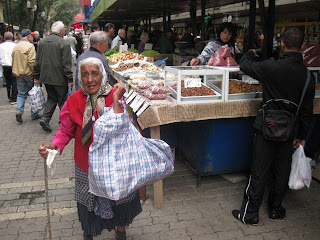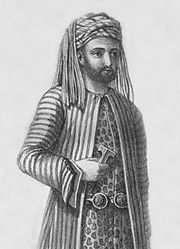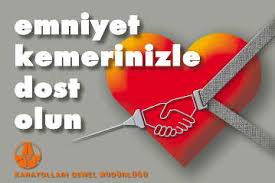It has been a while...
I GOT A LETTER FROM MÜNEVVER SAYING
by Nazım Hikmet
Nazım, tell me about the city where I was born.
I was still little when I left Sofia, but they say I knew Bulgarian...
What kind of city is it?
I heard from my mother Sofia is small, but it must have grown -
just think, it's been 41 years.
I remember the Boris Park. My nanny took me there mornings.
It must be the biggest park in Sofia.
I still have pictures of me taken in it... a park with lots of sunshade.
Do sit there. Maybe you'll run across the bench where I played.
But benches don't last 40 years; they'd have rotted and been replaced.
Trees are best - they outlive memories.
One day, go sit under the oldest chestnut.
Forget everything, even our separation - just think of me.
This is a poem written from Sofia, Bulgaria by one of my favorite Turkish poets (and one of my favorites, period, ever). Nazım-fans visit the old chestnut every year. It still sits in Borisova Gradina (Boris Park), shedding leaves over the same bench. Sofia was a particularly painful place of exile for Nazim. He’d been away from Istanbul for five years, and so many things in Sofia reminded him of home. (As they did me. Of my Turkish home—people eat köfte and işkembe soup. There’s a mosque in the middle of town built by the famous architect, Sınan. A sizeable Turkish minority still lives in Bulgaria. And of my American one—there are cheap Chinese take out joints everywhere, a surprising number of Irish pubs and even a restaurant called Happy’s that models itself on Hooters.) Other writers came here in there exile. Nazım’s good friend and prison mate, Orhan Kemal, died here. Sabahattin Ali was shot in route trying to cross the border. You’re not a writer in Turkey unless you have to flee for your life to Sofia, apparently.
When we went to Nazım’s wife’s Boris Park, there was an international photo exhibition going on. Giant bill boards displayed hundreds of pictures from around the world. Some skateboarders sat on benches and snickered at us as we browsed—they were decked out in tattoos and piercings and kept smirking into their fists in that smarmy teenage boy way, laughing with their whole body and staring to let you know they’re laughing while trying to pretend they’re trying to be discreet.) Parks here are pretty active, sculpture gardens, rock concerts, cafes, beer gardens, and game upon game of chess and backgammon. There were groups of smokıng men herded around chessboards all throughout one of the smaller parks. They shouted advice, commented on poor moves, and puffed on their smokes. There was one backgammon game, played very differently from the one in Turkey. (Singlets weren't being captured for instance). The chess tables were the most popular. They had clocks on them and were full of tournament level seriousness.

Nazim’s answer to his wife?
I WROTE A LETTER TO MÜNEVVER SAYING
by Nazım Hikmet
The trees are still standing, the old benches dead and gone.
Boris Park is now Freedom Park.
Under the chestnut I just thought of you.
And you alone - I mean Memet, Just you and Memet, I mean my country...
Last week was Şeker Bayram, the feasting period right at the end of Ramadan. We got the whole week off of school, and so a fellow teacher, Jonathan, and I took a trip to this city that had hosted so many exiled Turkish writers. We left Sirkeci Station in Istanbul at ten o’clock at night, bound for the border. The train was an old clunker from the communist days perhaps. It shook and jolted and rocked us nearly to death. At one point, after we passed through Edirne, I was bouncing up and down between my mattress and the roof. But it was romantic, in a shabby sort of way. Given its condition and age, it might have been the very train Nazım or Orhan rode out of the country.
After crossing into Bulgaria (this at around three in the morning) all lights and buildings suddenly vanished and there was just a field of black scattered here and there with spotches of light from small villages. The stars were radiant, and for the first time this season I saw the great figure of Orion arcing up from the Eastern horizon through the white spray of the Milky Way—the first sign of Fall for me.
I loved two things about Sofia—the food and the forests of Mt. Vitosha. Vitosha is the enormous, dome shaped mountain at the edge of the city, over 7500 feet high. We took a bus to a neighborhood on the foot hills and then walked the mile to the base of the mountain. Roads wound up through mountain villas and then disappeared into the trees. The green was hypnotic, that green-gold of early autumn when the leaves have not yet begun to turn, but you can see the yellow starting to come out, like a light shining from within. The forest smelled of damp soil and moss. We passed through a strand of birch--the silver white trunks glowing in the morning sunlight, and then hiked up a river past ancient gnarled pines. One looked like a bent gnome with an oversized head and dish-like ears. He was frowning down at the water, one gnarled hand at his chest. It could have been a Japanese kappa spirit, changed into wood by some furious sorceress or wizard.
Bulgaria is full of ghost and fairy stories. With forests like these, its not hard to understand why. Many of the stories begin, ‘Beyond nine green forests and over nine high mountains’ to indicate that all this takes place very very far away. One of these stories (which could very well explain our little tree man) is about Doichin, a young hero who managed to annoy the wood spirits by breaking an important taboo. As a punishment, the forest wove a spell. It entered his body, in an odd bit of spirit possession, and transformed him into wood. Moss grew over his ears and head, his hands hardened and froze into branches

The sounds of water trickling over rocks. Black squirrels chittering. Later down the trail was a sudden break in the trees where an avanlanche of gray stones had knocked some pines over the trail. We had to weave under them and crawl over the scree to get past. They fell so symmetrically that they formed a low tunnel of branch and needle. On the other side was a dense strand of tall, thin spruce. The trees swayed in the wind and as they did so, creaked and moaned so loudly that we were both spooked by the noise. At one point, we stood still on the trail and simply listened, watching each other’s faces. The trunks on either side grew so thickly that they blocked out all but narrow blades of light coming down through the canopy. Down on the hill below us, it sounded as if someone were snapping branches in two. Above us, was a sudden groan, like a woman crying. This was the loudest of all, and made the hair stand up on the back of my neck.
‘It’s just the trees,’ I said. But we were quiet until we emerged on the road, as if we might disturb something, or worse, be discovered wandering through some forbidden place.
One of Bulgaria’s forest spirits is called the vila. Vilas spring from the ghosts of dead children or virgins. On up the trail was a metal plaque bolted into a cliff wall. A young man’s picture stared out wide eyed from two dates, one marking his beginning, one his end. A cross floated next to his face—(from the papers hanging all around the city with the same pattern, I assume this is how obituaries are announced). Behind the plaque was the grassy peak, white mist slithering down.
A storm chased us down the mountain. I remember running hard down the road toward the bus stop, water gushing through the gutters. We sprinted over potholes, leapt through rivers of muddy runoff. We tried to hide from the cars to avoid being splashed, but to our utter amazement, they slowed enough to not overly disturb the water. This is a courtesy never seen in Istanbul. The mountain was completely swallowed in a black cloud when we finally reached the main highway. Lightning, thunder, but the city itself was still clear.
Later, we visited the National Art Museum in Central Sofia. I was very impressed by the paintings. Centuries of artistic struggle, of visionaries and rebels, of lives lived and vanquished, and I had not heard of one of these men or women. One of my favorites showed a girl sitting on a rock on the edge of a forest. A translucent monster was descending the mountain and wrapping itself around her—gigantic, godlight--as she stared off into the night, a crazed look in her eyes. The girl’s mother had collapsed at her feet, weeping. The title was ‘Mother, a Dragon has Fallen in Love With Me.’ It was painted during the surrealist period in Western Europe. Was it a metaphor for madness? For divine inspiration? The Bulgarian dragon is called the zmey. It’s an elemental. Each one watches over a village and fights with demons who try to bring down evil weather. Their battles create violent lightning storms. They are protectors, powerful, divine, and apparently sexy. They love music and often seduce girls with a kind of flute called the kaval (also a major instrument in Turkish folk music). The children of human-dragon love affairs rarely survive and must go into hiding, passing among us as people with spells to hide their wings—forever different and strange and alone.
Of course, we gavur (infidels) in Turkey go to Bulgaria for the pork. We ate the flesh of the swine every single meal. Our lunch in the mountains, for example, was a ham, Swiss cheese, village bread, and a jar of dark honey we bought from a guy parked outside the monastery. The supermarket where we got the rest, by the way, was a bit odd. Women were stationed all over the store—very young women—dressed in high heels, tight short skirts, and low cut blouses. They hawked everything from free pieces of sausage, to little pieces of bread with soft cheese, but looked like porn stars. The two in charge of the cheese table were ignoring the customers and sneering at some woman even more ridiculously dressed than they were. (Think Mrs. Wiggins from the Carol Burnett Show) She had piles of bleach blond hair ice-cream scooped on top of her head, a botoxed face, a fake tan, and heals that nearly doubled her height. Her plastic Barbi breasts balooned out from her blouse and her arm was hooked around her body builder boyfriend. The cheese girls really took umbrage at her boots, whose heels were twice as tall as theirs so that she teetered as she walked.
By the way' the aforementioned dark honey is some of the most amazing honey I've put in my mouth--nearly black, with a slight molasses flavor, it goes perfectly with warm bread and salty ham. A guy in sunglasses was selling out of the back of his Toyota, along with lighter honeys and a wide assortment of bee related products, all marked in Cyrillic letters. "Myed" is the Bulgarian word.
Another beautiful thing was the warm chocolate croissants sold at the vegetable bazaar. The stalls were loaded down with a rainbow of peppers--pink, yellow, green, red, orange--as well as black and red currants, Mersin cherries, and all the usual suspects. The raspberries were also pretty scrumptious. The bazaar was great for people watching, too.
My favorite meal, however, was a slow cooked pork roast seasoned with spices and pumpkin seeds, served with grilled potatoes with butter and dill. We washed it down with Bulgarian rakiya (essentially grappa) and Zagorka beer. The appetizers were equally amazing—wild mushrooms, walnuts and polenta with cheese sauce, red pepper salad, cheese and garlic breads.

The restaurant was recommended by the daughter of our landlady (the hostel owner). She greeted us with breakfast every morning—typically thick hunks of bread, German like wieners with cheese, a Turkish style salad, and coffee. Our last morning she surprised us with a ‘special Bulgarian yoghurt’ and black currant compote, then sat down to chat. She was a teacher of information technologies at a local high school. She was married, but didn’t seem all that happy. ‘In America everybody divorce,’ she explained. ‘You can marry five or six times. I’ve seen it on TV, but here, its too expensive. Maybe I want to divorce, but who gets the house? The other person must buy half to split it evenly and of course, can’t. So we stay married!’ Was this an example? Her own story?

Her daughter had spent a year in America. ‘But it was very terrible,’ she said. ‘She worked at the Busch Gardens and on her very first day, a black man handed her a mop and made her clean a toilet. She cried and cried. Here she was, a woman with a high....how do you say?’ ‘IQ?’ I suggested. ‘Yes, yes,’ she said. ‘A high IQ and a master’s degree in business and she must mop for a black man. I am not a racist, but (CLASSIC!) this was a terrible thing to happen, I think.’ I told her that focusing on the color of the man’s skin might actually BE the definition of a racist. She smiled and shrugged. At first, her daughter seemed like a spoiled little snob, but our hostess went on to explain her initial distress. ‘In America, everyone can move up or down. You have promotions. You have summer work. But in Bulgaria, you stay where you are. The job you start is the job you end. You don’t get richer or poorer. You’re stuck.’ In Bulgarian terms, perhaps, the mop was a sign of her status for life, of hopes dashed and an education wasted.
The Nevsky Cathedral was one of my favorite tourist spots. It was enourmous. The only lights inside came from candles so the towering dome was lost in the darkness and the wall paintings and icons were half shadowed, half glittering in candle flame. You wandered from pool of light to pull of light, while all around you, you could sense this enormity of open, unseen space.

Another amazing building was a red brick church right in the middle of downtown, set among skyscrapers, the Sheraton hotels, and the Benatton. It dated from before 400 AD, and was once a pagan temple that had been turned into a church when Constantine converted his empire. Roman ruins among the glass and steel. For a moment, the immensity of time and history passed like a shadow over the sun. Then we took pictures. Some teens were smoking under a walnut tree hiding some columns. A pagan temple to which god? Hard to tell, but Bulgaria is the home of Orpheus, yes, the guy who pursued his girlfriend to Hell and almost got her out. Zeus, Poseidon, Hades and all that bunch were worshipped here by the Thracians in the BC years. I keep being surprised by how much Greek mythology happened outside of Greece. Orpheus in Bulgaria, Medea in Georgia, Midas in Turkey (Kutahya).

Our last few hours we spent in one of the Irish pubs--guzzing Guiness. A group of Bulgarians (20 in all) were watching an English football game (a few Bulgarians play on English teams--Stiliyan Petrov plays for Aston Villa for example). These men and women were the maddest fans I had ever seen. At one point, I saw them all leap out of their seats in wild cheering--one guy knocking over a chair only to be caught by one of his mates, who then hugged him and laughed. Jonathan and I looked at the screen--was it a goal? But the only thing that had happened was that the other team LOOKED like it might get a yellow card.
We were sad to leave. We had a dinner of Bulgarian wine, ham, bread, and cheese set for the journey. A rainy twilight was falling. As we left Sofia, we raced past yards of rusting train cars and weeds, dilapidated buildings covered with graffitti, then hay-colored fields wet with a rainy haze. I saw a group of people bent over rows of onions. As we passed, one woman stood and waved frantically at the passing train. Then all of them followed suit, a group of onion pickers bidding us farewell.




















